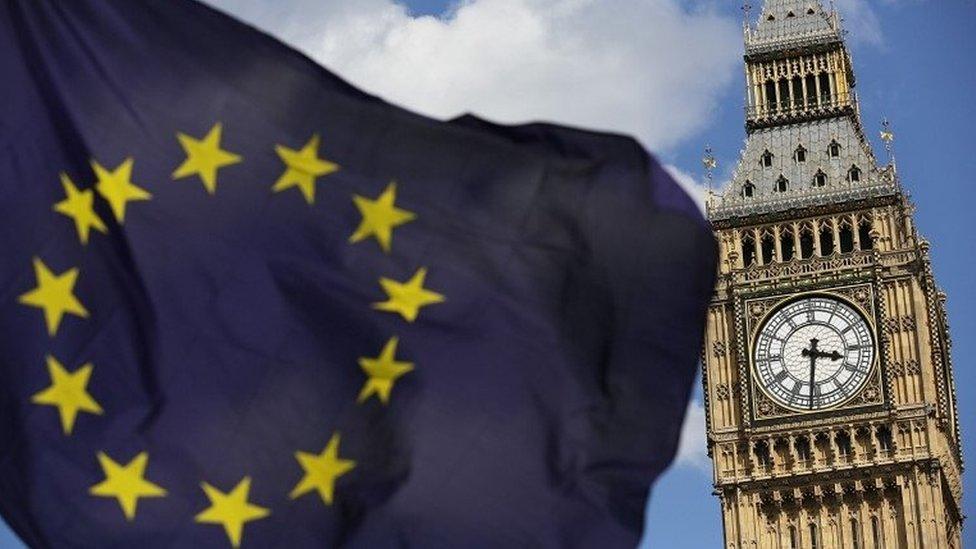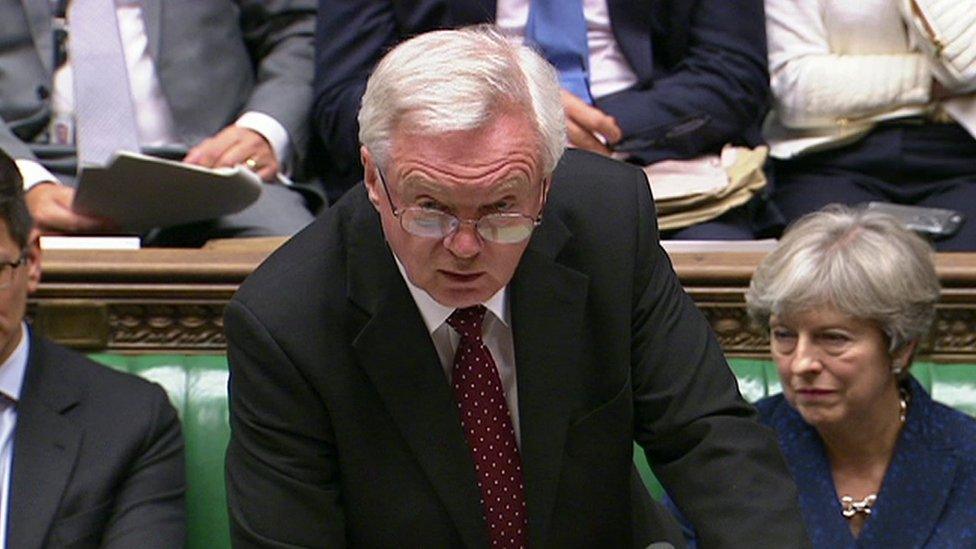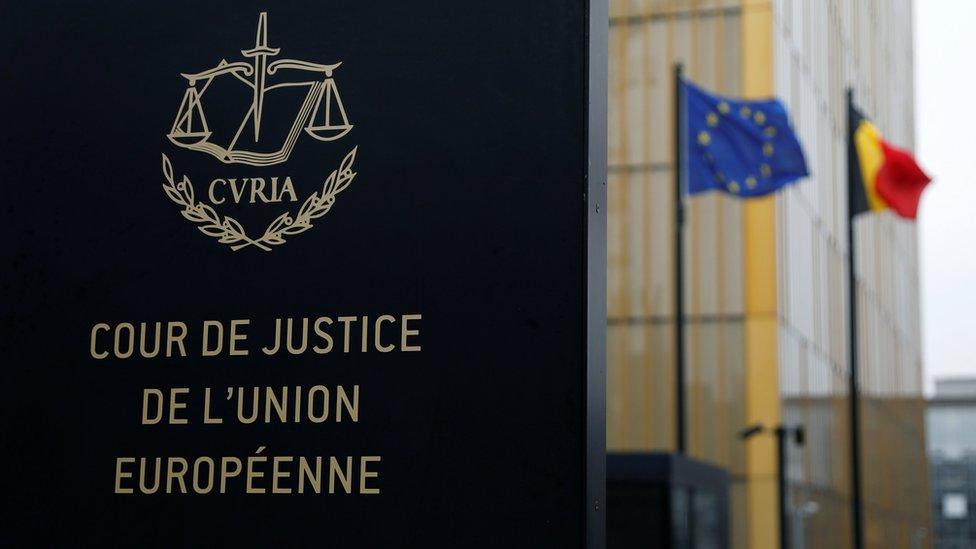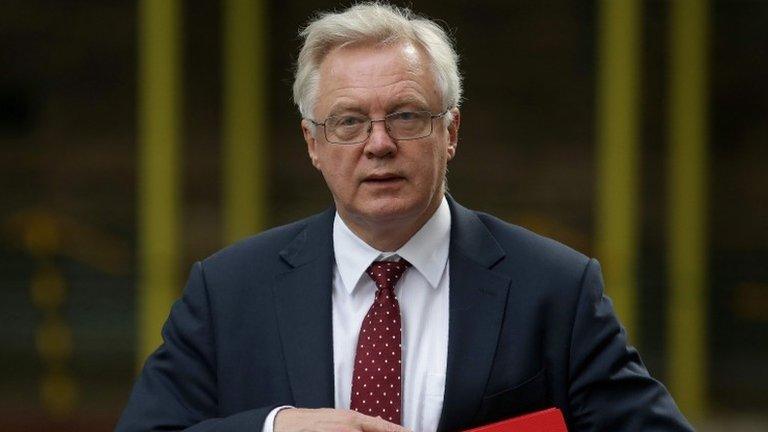Brexit: Withdrawal bill gives 'excessive' power to ministers, peers warn
- Published
- comments

The bill designed to transfer EU law into UK law in preparation for Brexit will give ministers "excessively wide" powers, a committee of peers has said.
The committee examined the delegated powers conferred on the government by the EU Withdrawal Bill.
It said Parliament, not ministers, should decide how much scrutiny the powers receive.
The government has tried to provide assurance that delegated powers will not be excessive or inappropriate.
The European Union (Withdrawal) Bill is a piece of primary legislation, which - like many bills - would delegate powers to ministers to make orders and regulations, also known as secondary legislation, after the bill becomes law.
The bill sets out which of regulations will be subject to debate and which will not - but the House of Lords' Delegated Powers and Regulatory Reform Committee says Parliament should decide.
Its report, external proposes that committees in the Commons and Lords - or a joint committee of both Houses - should be given 10 days to overturn a minister's proposal and require full parliamentary scrutiny of the regulation and a vote. This is known as the "affirmative procedure".
What are delegated powers?
Acts of Parliament often give ministers powers to make law themselves rather than putting an entirely new law through Parliament
These are called "delegated powers", as Parliament is delegating some of its authority to make law to someone else
Acts are known as "primary legislation", while orders and regulations made by ministers are known as "delegated" or "secondary legislation"
These orders and regulations are usually made as statutory instruments (SIs)
They are generally subject to negative procedure - where instruments become law without a debate or vote in Parliament - or affirmative procedure, meaning they have to be approved by both Houses in a vote
So-called "Henry VIII powers" enable primary legislation to be amended by secondary legislation with or without further parliamentary scrutiny
Peers are concerned about the number of regulations under the so-called "negative procedure", which assumes that a statutory instrument is acceptable unless action is taken to the contrary.
A statutory instrument under this procedure is made by a minister and usually becomes law immediately, though MPs or peers can table a motion to annul the instrument.
Government assurances
The bill specifies delegated powers may not be used to impose taxes, create a criminal offence, or repeal the Human Rights Act 1998
Most of the delegated legislation will be subject to the affirmative procedure - although some, including the power to modify exit fees, will not be
A "sunset clause" means powers delegated in the bill expire two years after the UK leaves the EU
Lord Blencathra, who chairs the committee, said the bill "seeks to confer on ministers an extensive range of powers, unique in peace-time".
The Conservative peer added: "We have put forward what we think is a sensible proposal which will enable the government to use secondary legislation to implement the decision to withdraw from the EU whilst ensuring that it is Parliament - not the government - which decides the level of scrutiny applied to that legislation."
The report comes after Labour MP Hilary Benn, who chairs the Commons Brexit Select Committee, suggested the bill could give ministers "a blank legislative cheque".
The government has said the powers are needed to update regulations and make "technical corrections".
Further doubts have been raised over whether Parliament has the time and resources to give these delegated powers the necessary oversight.
The proposal by peers to allow 10 days' consideration of an order could make the legislative process even longer.
The Liberal Democrats said peers were "calling out ministers for their power grab".
The party's Brexit spokesman, Tom Brake, said: "This is a thoroughly bad bill which not only gives 'excessively wide law-making powers to ministers' but also makes a mockery of claims that Parliament is taking back control of our laws."
- Published28 September 2017
- Published7 September 2017

- Published13 November 2017

- Published10 August 2017
